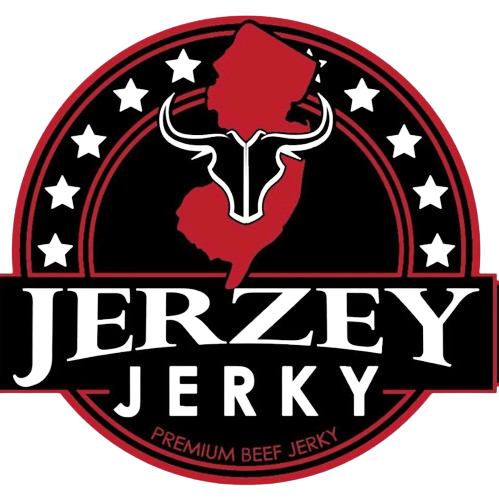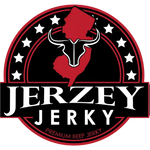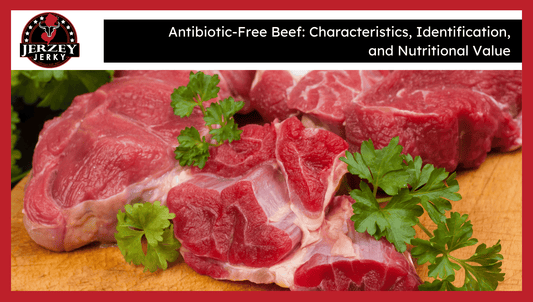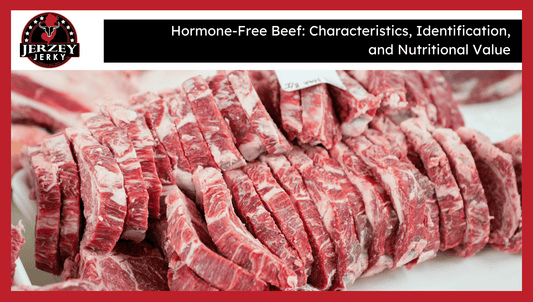
Can Dogs Eat Beef Jerky?
Dogs can safely consume beef jerky without salt, spices, and preservatives.
Homemade or dog-specific jerky does not pose these risks. Dog products are prepared with a single source of protein and do not contain toxic fillers. Having it once or twice a week leaves consumption under control and avoids health problems associated with excessive sodium or artificial additives.
More than 70 percent of commercial brands contain garlic and onion powder. Both are dangerous for dogs' health.
The FDA linked 360+ cases of sick dogs to imported jerky that contained unknown additional substances. The symptoms are vomiting, kidney damage, and lethargy. Commercial jerky contains 200-300 percent of the recommended sodium intake in just one ounce, which exceeds the limits for dogs.

What Makes Human Beef Jerky Unsafe for Dogs?
Here are six reasons human beef jerky harms dogs, based on verified ingredients and health risks:
- Sodium Levels: Human beef jerky has more than 400 mg of sodium in a single strip. Dogs only need lower than 100 mg per day. Excessive salt ingestion causes vomiting, diarrhea, or salt poisoning. Sodium imbalance leads to excessive thirst and fatigue as well.
- Onion Powder Garlic: Garlic and onion powder contain toxins, even in small doses. Onion powder, administered at a dose of 0.5 grams per kilogram, is toxic to red blood cells. The results are anemia, dark urine, and weakness. These are the usual hidden ingredients in many jerky brands.
- Marinades and Spices: Ordinary ingredients such as pepper, chili, soy sauce, and sugar upset the stomachs of dogs. An additional smoke flavor enhances the chances of nausea and bloating. Spices are not broken down well in dogs, which puts them at a higher risk of gastrointestinal distress.
- Choking Hazard: Dry jerky or thick jerky poses a choking hazard. Dogs tend to take jerky into their mouths without chewing. This obstructs the throat and constriction of airway. Small breeds are more prone to choking issues, which often require emergency veterinary care.
- Preservatives and Additives: Nitrates and MSG are often used in human jerky. These chemicals interfere with the liver and intestinal conditions. The research associates its consumption with liver swelling and digestive disorders in dogs. Over time, processed meat exposes one to more toxins.
- Long-Term Consumption: Continued consumption of salty, flavored jerky leads to kidney and liver overload. When dogs consume such jerky regularly, the common symptoms include fatigue, excessive urination, and weight loss. Older dogs take longer to eliminate toxins and, as a result, develop organ problems at a faster rate.
Can Dogs Eat Store-Bought Beef Jerky?
The majority of the brands of commercial beef jerky contain salt, sugar and seasoning, which are harmful to dogs. These ingredients are usually concealed even behind plainly labeled products. Added sugars and high sodium cause dehydration and digestive issues in dogs.
One-ingredient jerky, such as plain beef jerky without any additives, picked up in a store, poses fewer risks. However, never forget to read about sodium levels and labels for artificial components. Preservative-free, unsalted dog jerky is a better alternative. Veterinary nutrition rules confirm that feeding jerky containing additives poses a risk of dog poisoning and gastrointestinal upsets.
Can You Make Homemade Jerky for Dogs?
Homemade jerky offers complete control over ingredients with guarantees to dogs' safety. Lean beef free of fat reduces spoilage and increases health risks. Chop the meat into thin strips to make sure the uniform process of dehydrating and chewing the food.
Dry beef for 6 to 8 hours at 160 °C. Do not put in any salt, seasoning, oil or artificial flavoring. These ingredients are detrimental to the dog's stomach and their organs. Avoid using onion, garlic or soy sauce because they are toxic.
Refrigerate freshly made jerky in a cool and dry area and store it for up to two weeks. Freeze it in airtight containers to preserve it for a longer period. Maintaining appropriate storage conditions eliminates mold and bacterial accumulation, storing the jerky securely and fresh to be consumed by dogs.
Are There Dog-Safe Jerky Options?
Here are two safe jerky options for dogs based on ingredients and safety:
- Dog-Specific Jerky Treat: Pet stores sell jerky food that is specifically designed as a dog treat and contains fewer ingredients. These snacks are free of any additives such as salt, garlic, or preservatives. It is well labeled with meat and natural preservatives, which make it safe according to AAFCO regulations.
- Dehydrated Single-Ingredient Beef: Lean 100% beef jerky without any additional substances is not as risky. Unseasoned dehydrated beef strips minimise the risk of digestive upsets and poisoning. These treats reduce the risk of exposure to sodium, spices, as well as artificial chemicals that are dangerous to dogs.
How Much Jerky Can Dogs Eat?
Jerky is not a meal alternative to dogs but an occasional treat. It is advisable that jerky be no more than 10 percent of the daily intake to prevent nutritional imbalance. Excess intake of jerky causes obesity and stomach complications.
The owners must check symptoms of allergies or an upset stomach following the consumption of jerky. It causes diarrhea, vomiting, or itching. At the initial stage of reaction, it is better to avoid jerking to prevent aggravating health issues. Moderate treats help maintain a balanced diet and digestion in dogs.

 2025-07-23
2025-07-23
 Wayne Holland
Wayne Holland










